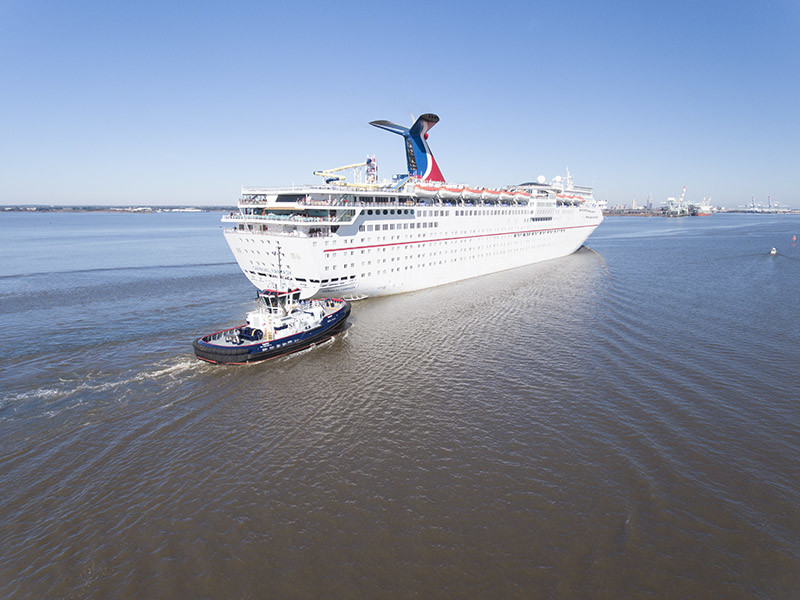Cruise ships operate in a very different world from tugs, towboats, and inland passenger vessels. But a recent 11th Circuit Court of Appeals decision dealing with medical care aboard a cruise ship raised legal issues that may be of interest to all commercial vessels.
The case involved a passenger who suffered a heart attack aboard a large cruise ship. Early into the cruise, he woke up with stomach pain. He went to the ship’s infirmary after dinner. Tests showed he was having a heart attack and he was moved to the ship’s intensive care unit.
After a remote medical consult, shipboard doctors felt the patient should stay on board for treatment. For about 36 hours, ship’s medical staff monitored the passenger. At Miami, the passenger was taken to a hospital. Surgeons implanted four stents, and he later had a pacemaker installed. He sued the cruise line for failing to diagnose and properly manage his condition, and for not evacuating him from the ship.
The courts had to determine whether the cruise line was negligent. This is essentially the core of a medical malpractice lawsuit. Did the medical provider meet a certain standard of medical care? The lower court instructed jurors to apply a standard of ordinary, reasonable care under the circumstances. The cruise line argued that the instructions should have been about a standard of care for a maritime environment. The courts ruled in favor of the passenger.
The decision shows that vessel operators can be held to high standards when it comes to providing shipboard medical care. There are 200,000-ton cruise ships operating with medical facilities that rival those of rural hospitals. But what about smaller commercial vessels?
A new generation of small commercial vessels may carry well-stocked infirmaries, complete with defibrillators and other sophisticated equipment. But I’ve seen small boats with medical departments that are nothing more than a tin of bandages and a few aspirin tucked away in the galley next to a box of Pop-Tarts.
This decision might make some operators think about what it means for a vessel to meet an acceptable standard of medical care.




